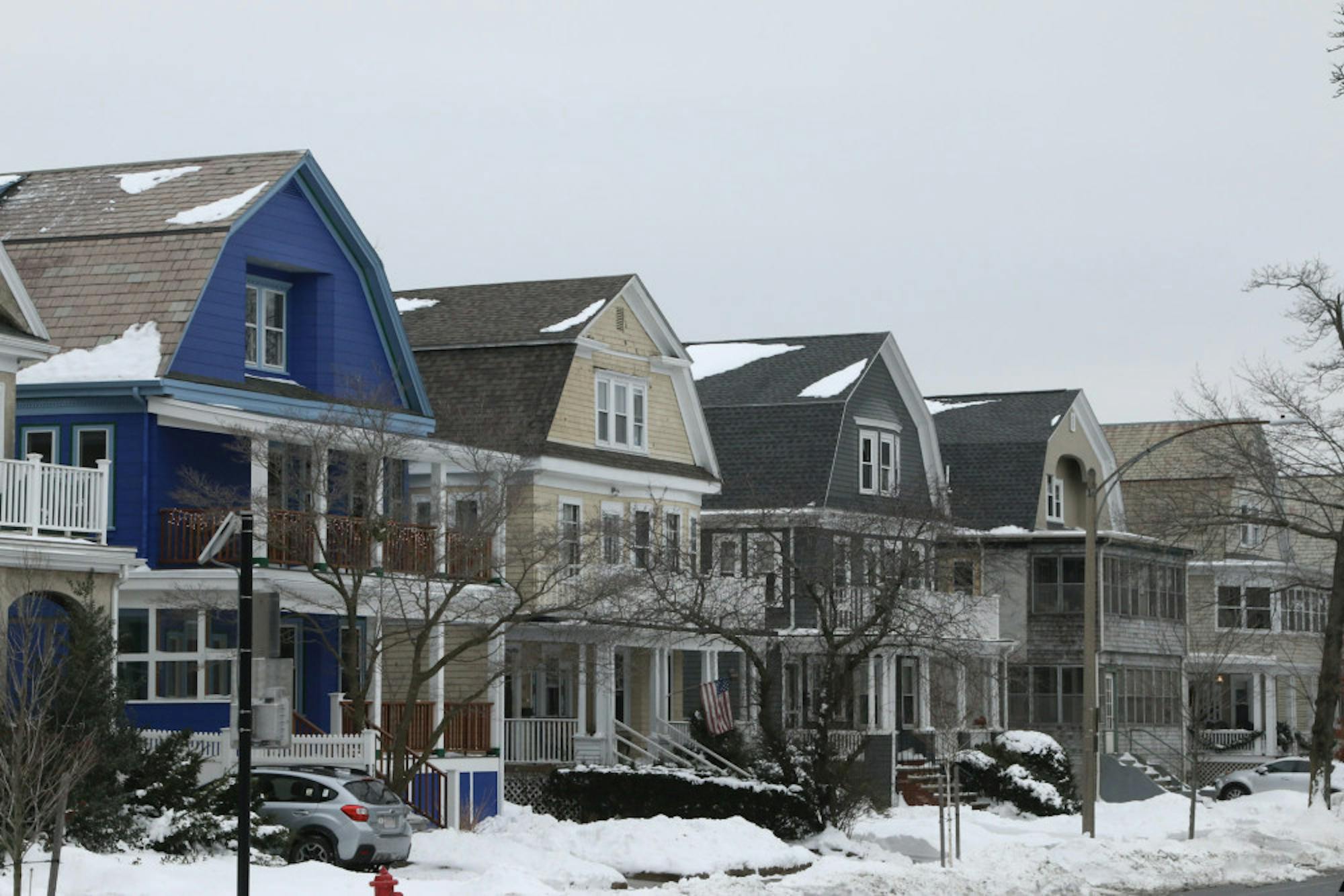State Representative Erika Uyterhoeven of Somerville recently petitioned Bill H.4208 in a joint committee in the Massachusetts General Court. The bill, one of many recent Tenants’ Opportunity to Purchase Acts, would permit Somerville to create a program where tenants of a property would be given the chance to purchase it jointly before it is put on the market. Uyterhoeven’s petition comes after an earlier version of the bill previously passed through both chambers but was vetoed by Governor Baker.
TOPA legislation is becoming more and more popular among tenants’ rights activists and lawmakers concerned with the housing affordability crisis. As housing prices continue to rise in Somerville and cities around the United States, it has become more and more difficult for residents to both obtain affordable housing and to avoid eviction.
According to Uyterhoeven, the bill is a local option, which means that it must pass through the state legislature for local administrations like Somerville to have the choice and ability to enact it.
City Councilor Ben Ewen-Campen, who represents Ward 3 of Somerville, described how the housing affordability crisis specifically affects Somerville, especially communities of working-class, immigrant and senior residents.
“The large majority of people who live in Somerville are renters,” Ewen-Campen said. “There are effectively zero working class people or families who are able to buy a home in Somerville.”
Sam LaTronica, real estate director at the Somerville Community Corporation, also noted that housing inaccessibility and gentrification disproportionately affect communities of color in Somerville.
“As this continues and existing triple-deckers are chopped up and converted into condos, the folks who are buying those condos are by and large affluent white folks, and communities of color have fewer and fewer options,” he said.
Legislation such as TOPA seeks to give tenants first priority in purchasing the property they inhabit in case their landlord tries to sell it. TOPA laws would allow tenants to work with a third-party organization to help with financing.
Uyterhoeven also criticized real estate speculation as it impacts housing affordability. Many properties are being purchased by investors, causing surges in housing prices and large numbers of evictions.
“[Investors] are not part of … why people choose to settle and live in Somerville,” Uyterhoeven said. “They are not part of building that community, and that is why people want to come live here and stay here. And yet they are profiting off of it.”
Alongside TOPA legislation, Ewen-Campen noted the importance of other housing affordability policies being introduced, including enforcing a transfer fee, which takes funds from large real estate sales and puts them towards affordable housing.
“If you look at the price of housing in Somerville, it goes up a percent almost every month for the past several years,” he said. “So all we’re asking is that some very small amount of this enormous value that is pouring into our real estate market go towards helping people who are facing displacement.”
TOPA legislation also comes alongside other work that Somerville has done to increase housing affordability, such as the SCC’s 100 Homes project. The program purchases properties throughout Somerville and utilizes state funds to maintain an affordable rent for tenants. 103 properties have been purchased since the project’s inception.
“It is a city effort to preserve some of the naturally-existing, naturally-occurring affordable housing stock in Somerville,” LaTronica said. “Every time a property changes hands, it gets more expensive … we need folks who own property to realize if you’re going to sell it for this high amount, it won’t be affordable anymore.”
Ewen-Campen also highlighted the impact that the upcoming MBTA Green Line Extension would have on housing affordability in Somerville. The Green Line Extension plans to provide improved infrastructure, access to employment and access to public transportation to the Greater Boston area. Ewen-Campen argues that this development comes at a cost to housing affordability.
“It’s this huge benefit for the city that we’re getting the Green Line,” he said. “But because we don’t have meaningful tenant protections, we don’t have rent stabilization — it’s caused this gigantic run on real estate anywhere near the Green Line because you can either rent or sell apartments or houses for a lot more.”
Both Ewen-Campen and Uyterhoeven cited misinformation as a barrier to TOPA and other housing affordability legislation.
“We hear a lot of fearmongering from the real estate industry,” Ewen-Campen said. “At the local level, when we were talking about the transfer fee, there was a really unfortunate misinformation campaign from the local developer community, where they were basically lying and spreading misinformation — particularly to a lot of senior citizens — about what this legislation would mean.”
Uyterhoeven emphasized that TOPA legislation is aimed at targeting more large-scale property transfers and would likely not impact the sale of single-family homes or property owners with fewer than seven units.
“This is really about leveling the playing field between speculators and tenants, and frankly, even small homeowners and property owners,” she said.
LaTronica also noted that Tufts students should be aware of their role as Somerville community members and how they can impact the real estate economy.
“I think there can often be a tension between students and existing communities,” he said. “Students live in a community for a short time, and people see them as not invested, as transient, as disrespectful to the community … just being aware of that and doing what you can to carve out space and maintain space for existing longtime community members.”
Uyterhoeven and Ewen-Campen recommended that those interested in joining the movement for accessible housing should look into resources such as Homes for All or City Life/Vida Urbana, community activist groups that advocate for housing and tenants’ rights.
“Because this requires action across the state, we really need to build up a coalition across the entire state,” Ewen-Campen said. “These are issues that I think affect communities across the entire state. It’s just a matter of building political power and support.”






